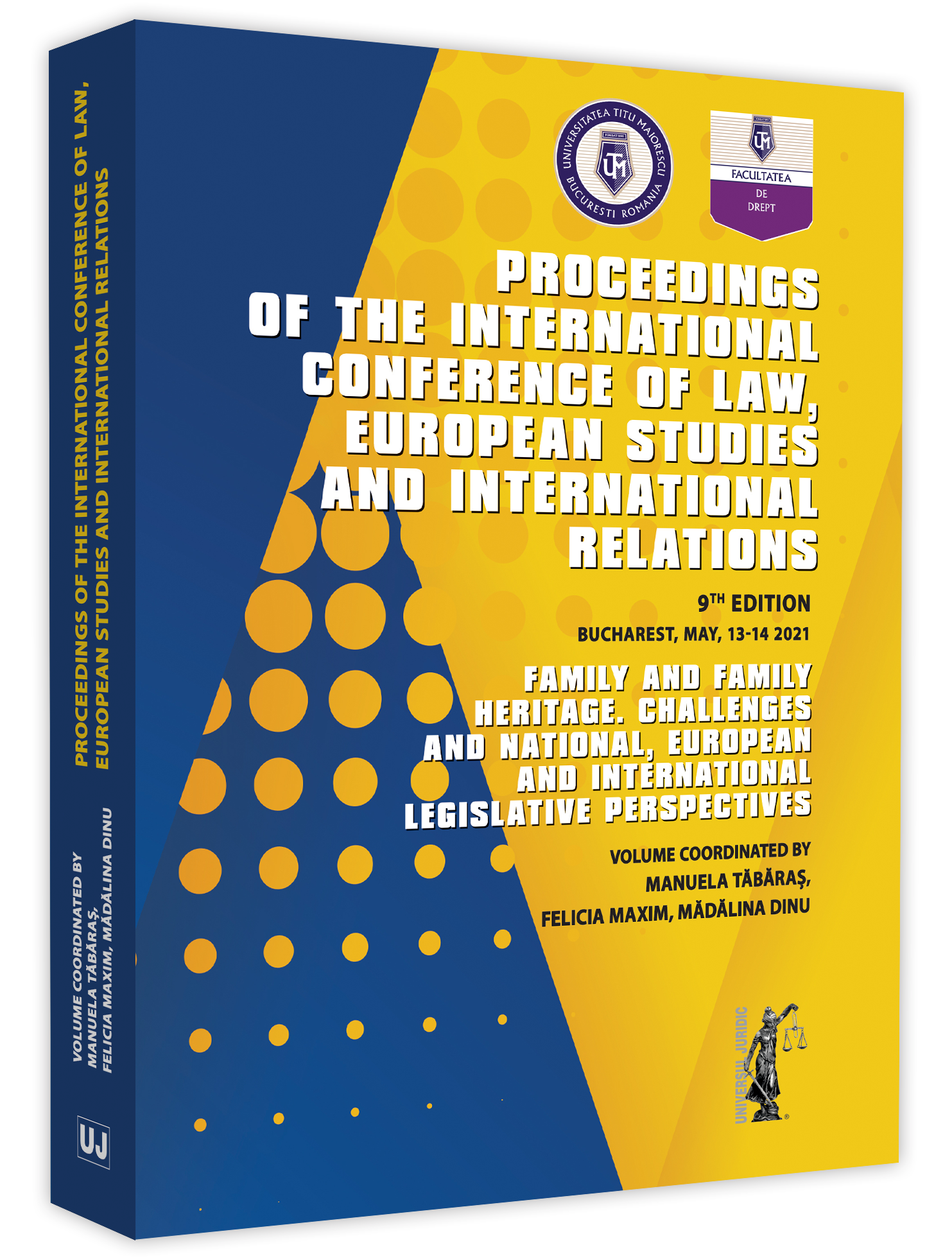APPROACH OF LEGAL CAPACITY OF THE UNDERAGE PERSON FROM THE PERSPECTIVE OF LABOUR RELATIONS AND TELEWORK
APPROACH OF LEGAL CAPACITY OF THE UNDERAGE PERSON FROM THE PERSPECTIVE OF LABOUR RELATIONS AND TELEWORK
Author(s): Ana-Maria PăduraruSubject(s): Law, Constitution, Jurisprudence, Civil Law
Published by: Editura Hamangiu S.R.L.
Keywords: telework; young person; child; legal capacity; work capacity; consent of parents; emancipation of underage persons;
Summary/Abstract: The work capacity recognized for the underage person who is at least 16 years old represents a completion brought by the Labour Code to the legal capacity provided by Civil Code, reflecting the Common Law on the matter, as the Labour Law rules that there is a third variant of the capacity resulting from the legal capacity, i.e. the work capacity creating a part and whole relation of the legal capacity. Therefore, the work capacity of the underage person appears as a partial capacity conditional upon the restricted legal capacity, as it becomes full at the age of 16 years. Subject to Law no. 81/2018 on regulating the telework activity, it is required to analyse the possibility of the underage person having work capacity to carry on activity as telework, using information and communications technology and taking into consideration also the legal frame related to definition, forbiddance and removal of dangerous works for children, which, by their nature or conditions of being carried out are harmful to health, safety or morality of children, being found in Government’s Decision no. 867/2009.
Journal: Conferința Internațională de Drept, Studii Europene și Relații Internaționale
- Issue Year: 2021
- Issue No: IX
- Page Range: 209-219
- Page Count: 11
- Language: English

